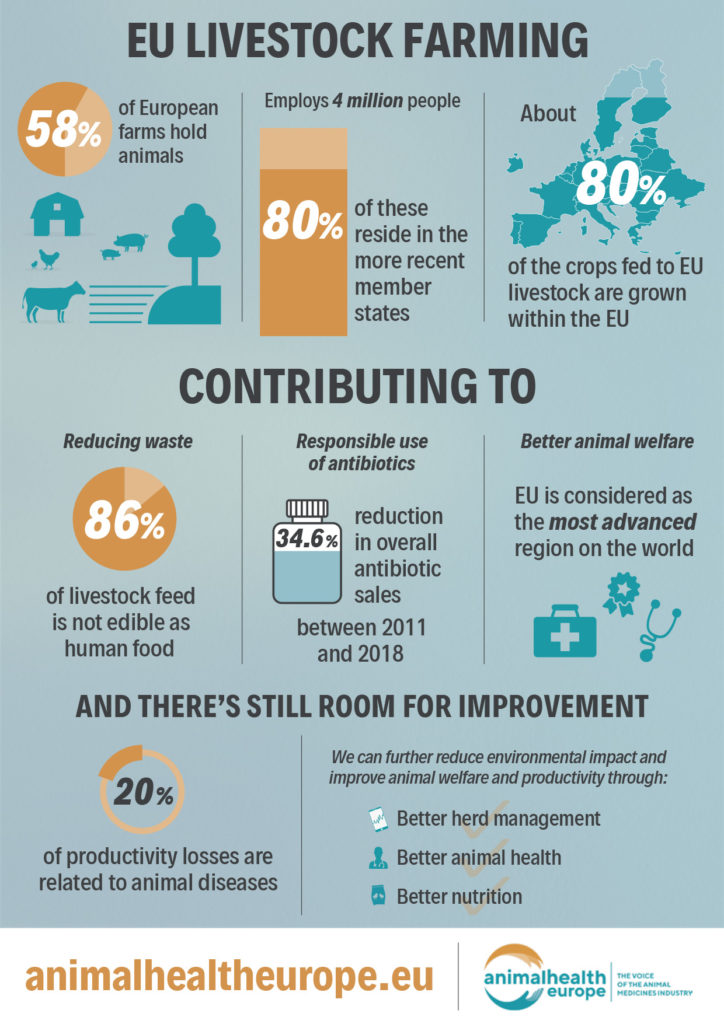Animals in agriculture
We believe that the well-being of animals in agriculture is a priority for society – that’s why we remain committed to ensuring that animals are cared for and raised in the best possible conditions. The animal health industry support vets and farmers by providing animal health products and services to ensure comprehensive care.
Europe’s population depends on farmers – including livestock farmers – to ensure a safe and secure supply of healthy food. Given Europe’s large – and growing – population, it is important that the agri-food chain is supported with policies that ensure the continued viability of farms. The animal health industry works with farmers and vets to develop advanced services and products that allow for more targeted attention to animals and more accurate, effective medicines to keep farm animals healthy.
As well as meat, livestock provides us with dairy products from cows, sheep and goats and eggs from a range of poultry. Aquaculture and bees for honey also form part of the agri-food sectors. But it’s not just foodstuffs, as farm animals also provide us with inputs for clothing, medicines and a great many products forming part of our everyday lives.
For Europe to continue feeding its population and maintaining control over its food supply, a sustainable, productive – and therefore healthy – livestock population is important. Animal medicines and vaccines help farmers and authorities prevent or treat a huge variety of existing diseases – bluetongue, bovine mastitis, circovirus, foot-and-mouth disease – and emerging diseases such as lumpy skin disease or bovine besnoitiosis. Thanks to vaccination campaigns and other disease control practices, these illnesses are no longer a serious threat to our livestock.
A viable future for livestock
Europe is the world’s largest trader in agri-foods. Any impact on Europe’s farms that affects food production or movement of foodstuffs – as many infectious diseases do – can have dramatic impacts not only on animal welfare, but also on farming economies, on exports, and on the future viability of farms. Therefore effective policies to support Europe’s livestock sector are important.
European agriculture is striving to meet with EU Farm to Fork and UN Sustainable Development goals for more sustainable production methods while facing the enormous challenge of adapting to increased climate variability and more extreme weather. Along with this, farmers are having to deal with the impacts of new animal disease outbreaks with milder climates seeing a wider geographical expansion of vector-borne disease and more humid environments escalating the spread of disease.
When it comes to animal health, it is essential that both the political and business environment are conducive to innovation, with a framework that allows for resources to be invested in more R&D. By facilitating the uptake of modern technologies and streamlining current authorisation processes, new medicines may be developed and existing medicines may be improved to fill the gaps in disease prevention for animals and treatment solutions that do not exist at present or are not available in certain countries. More efficient procedures to authorise medicines in exceptional situations, can also allow for greater preparedness in the case of new or recurring disease outbreaks.

